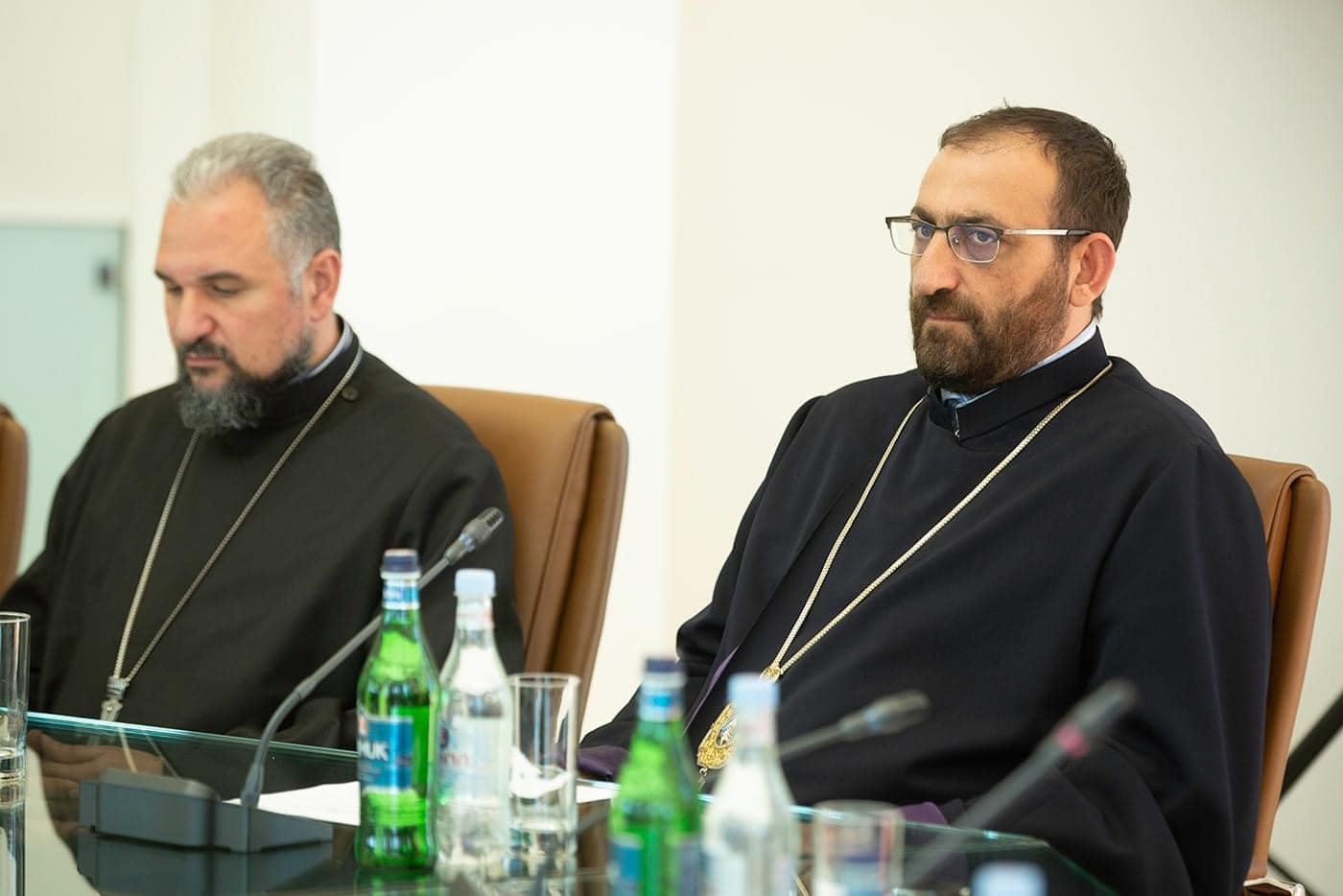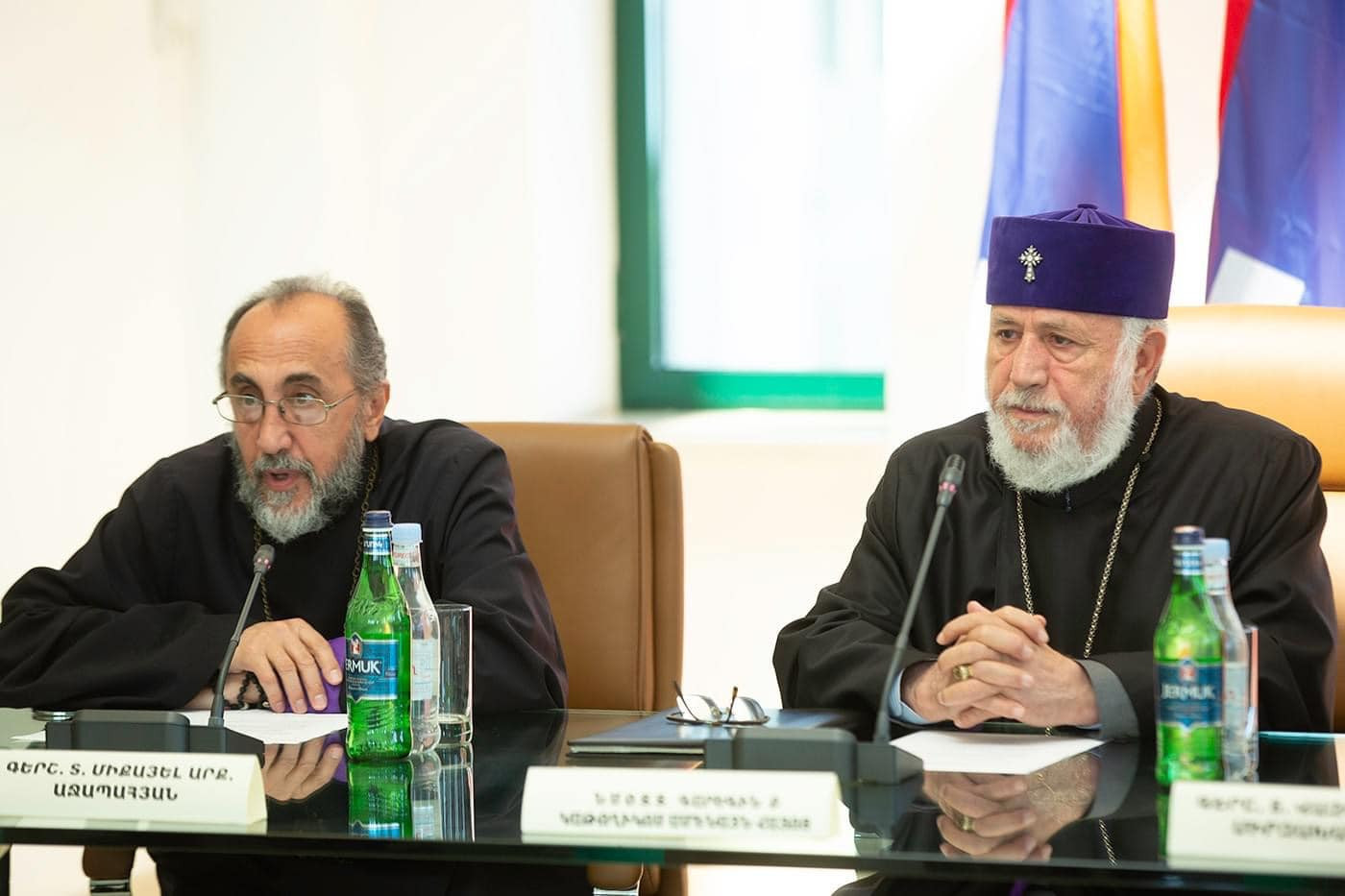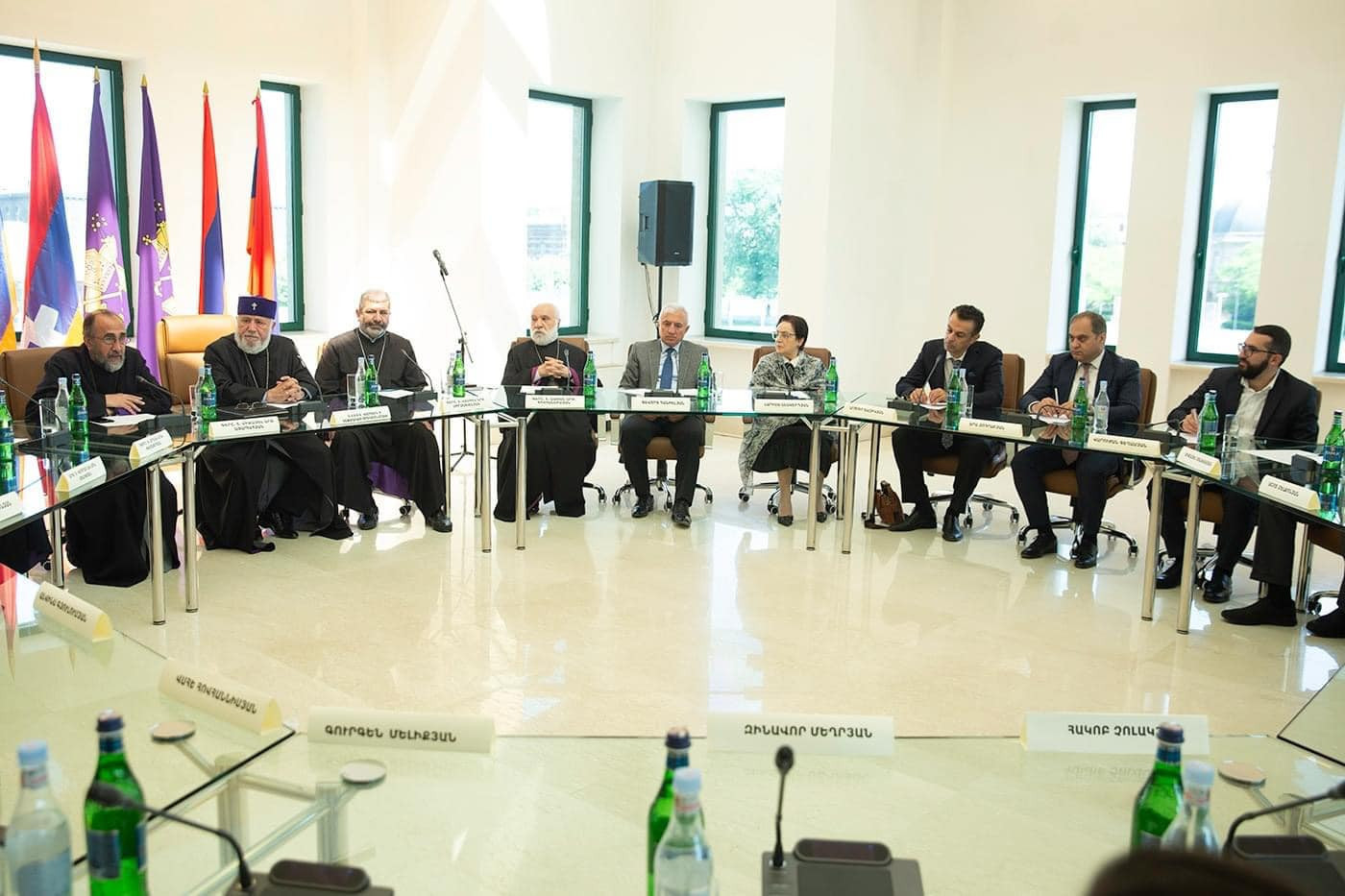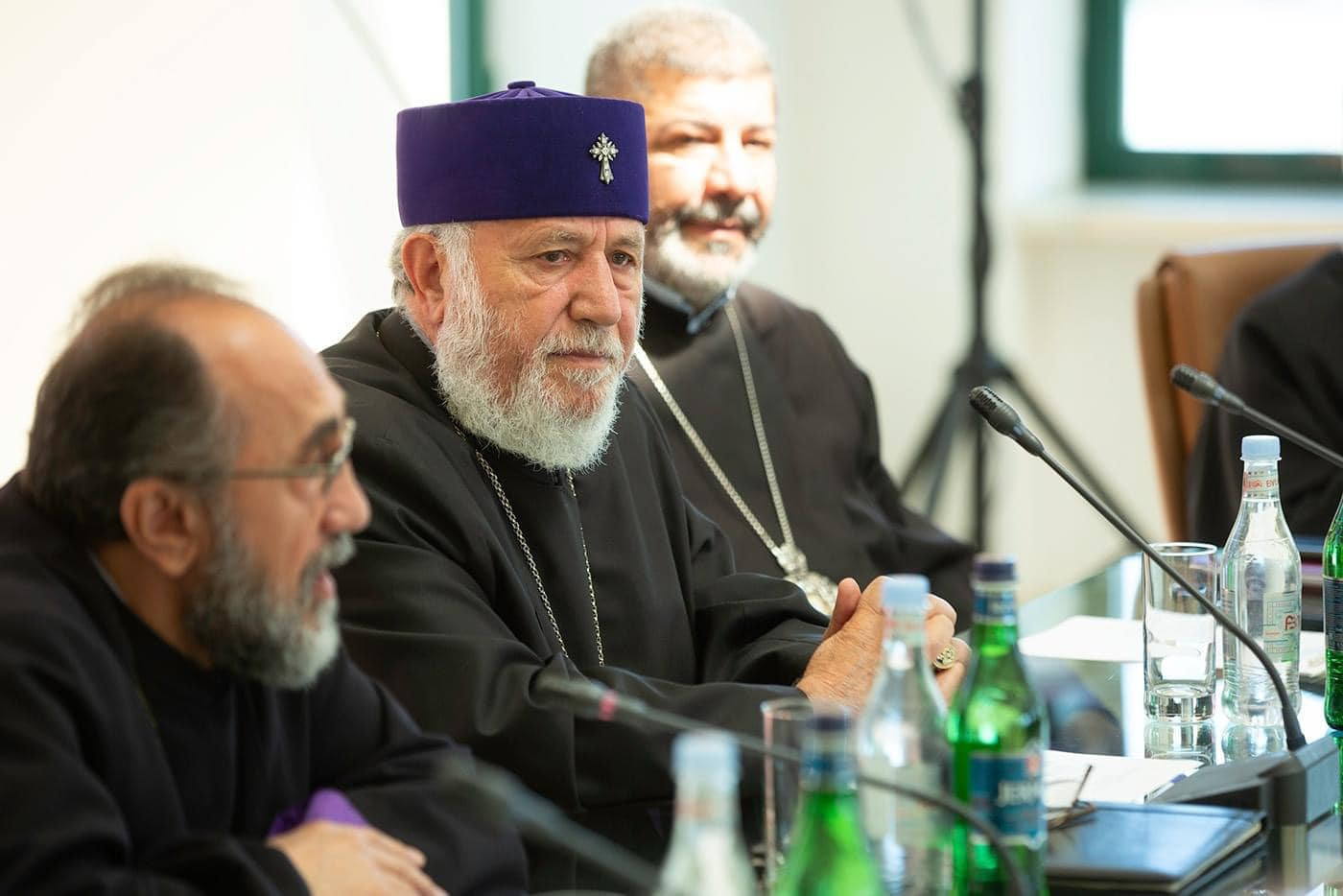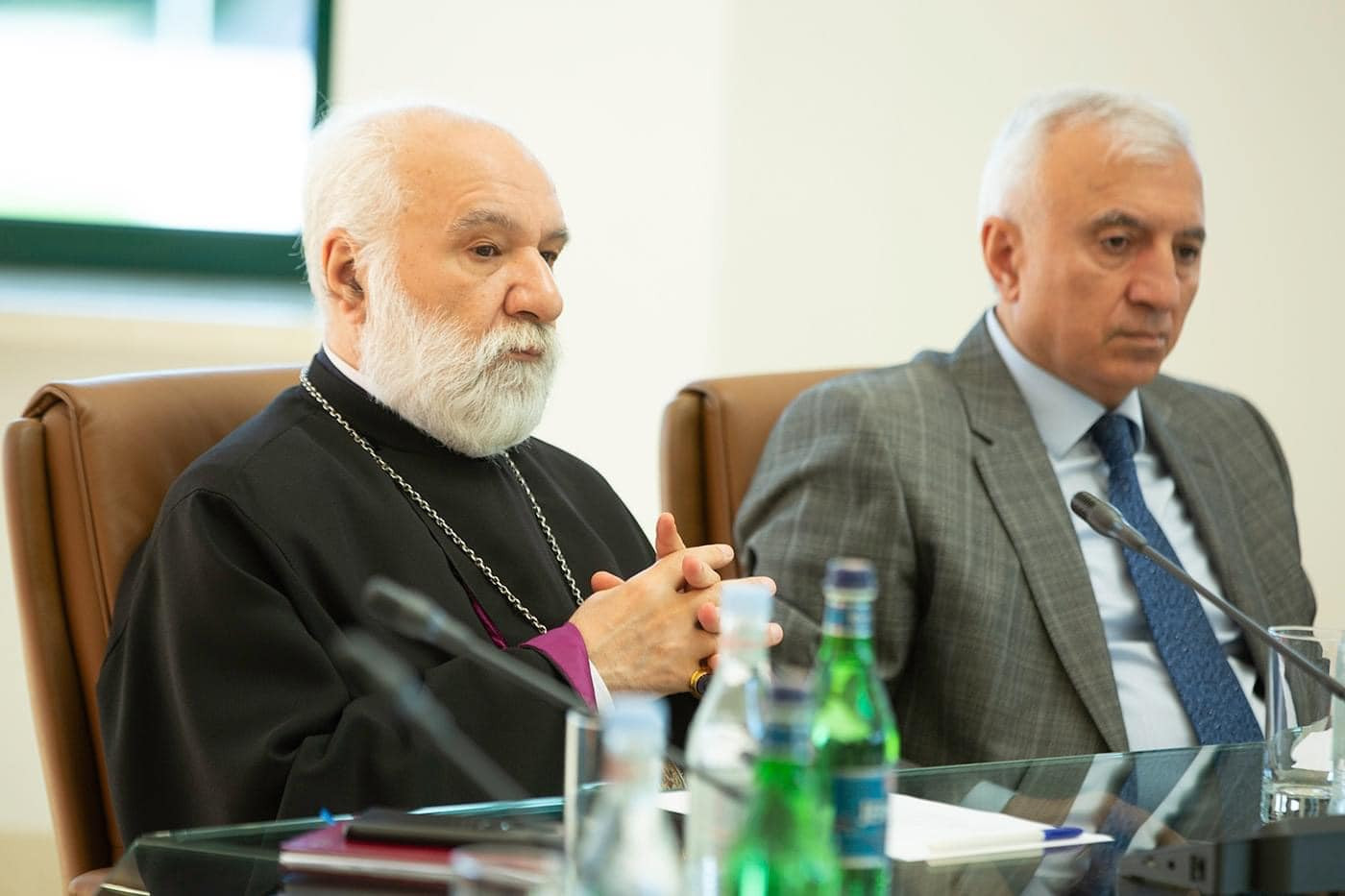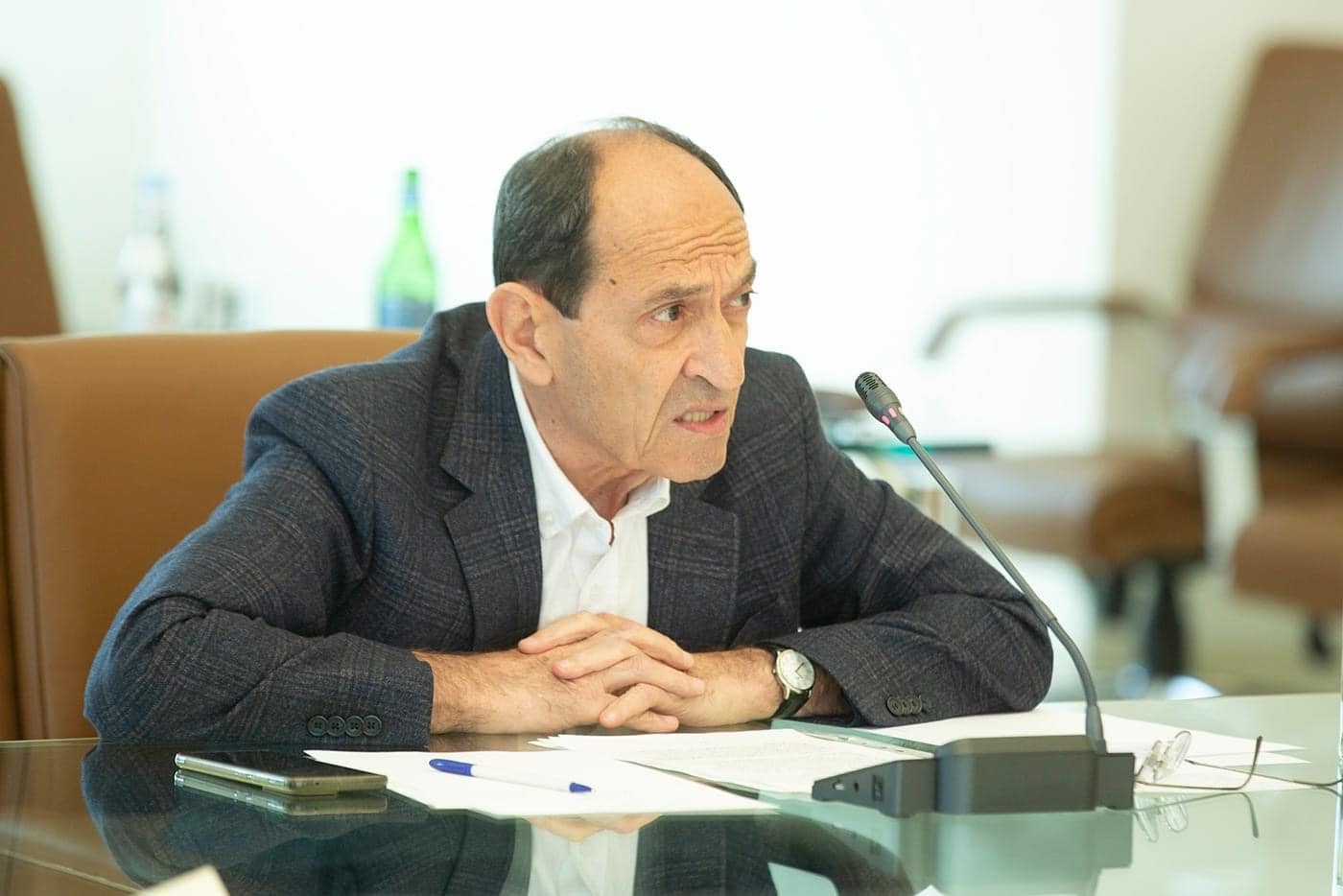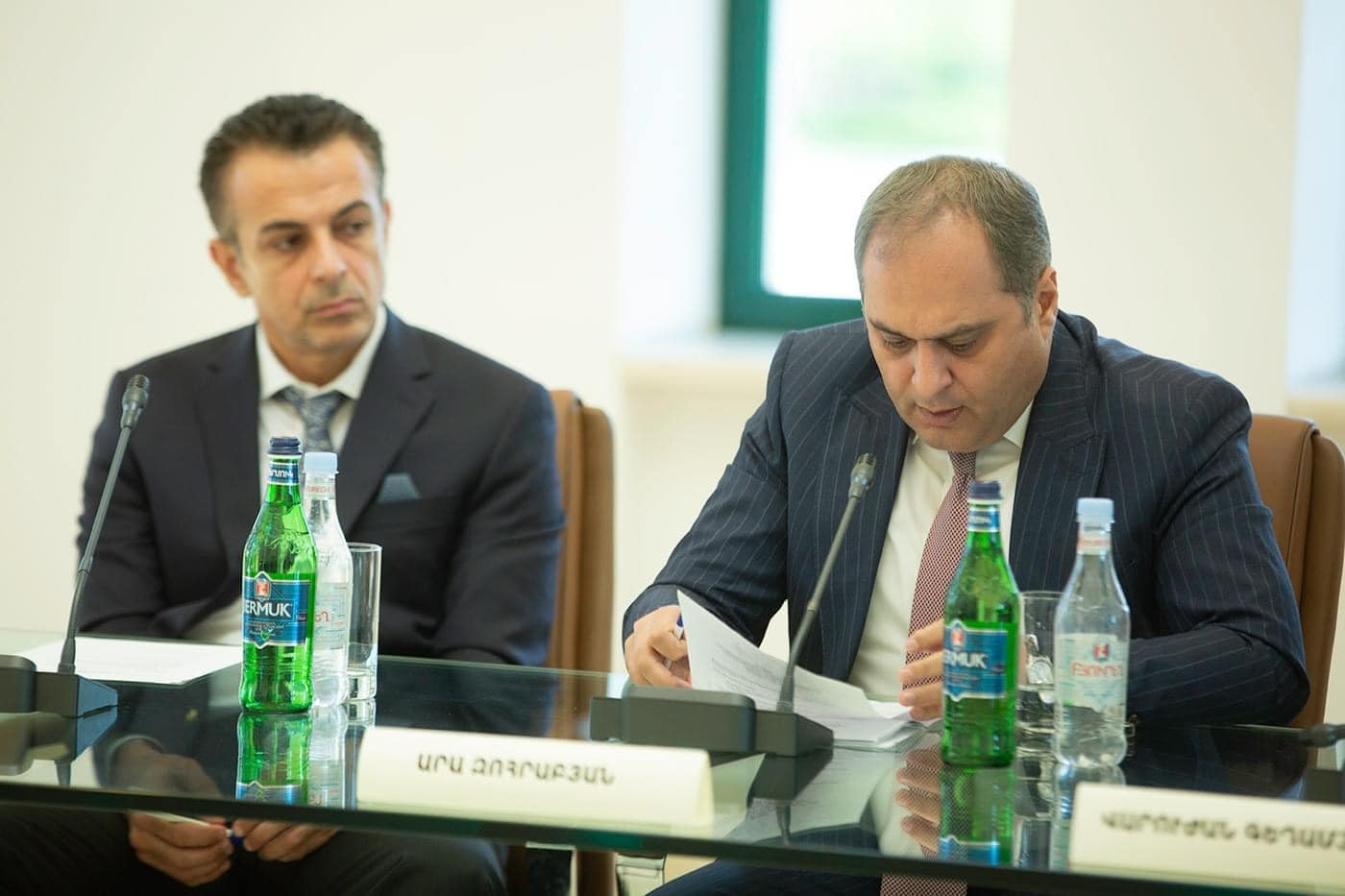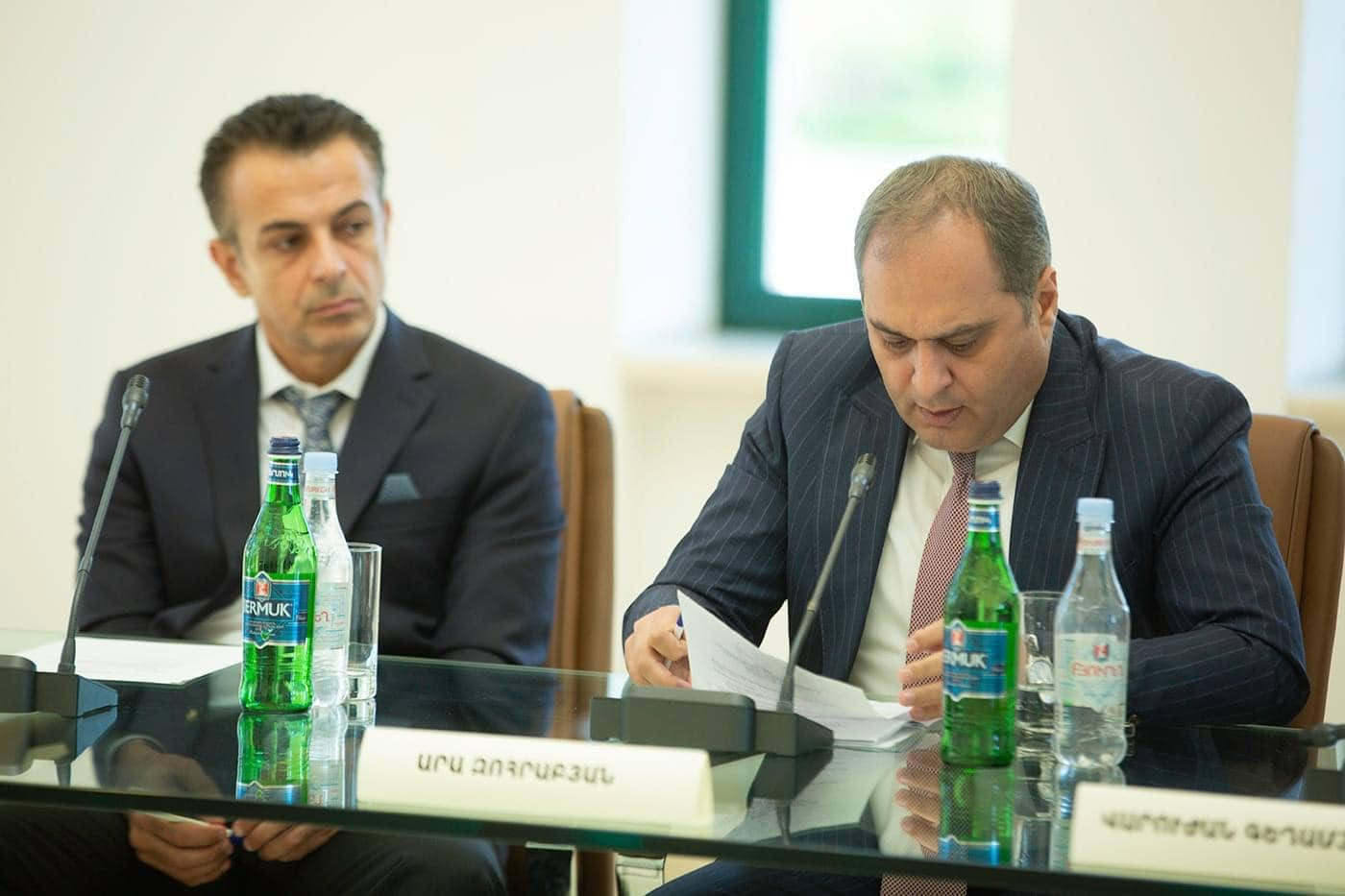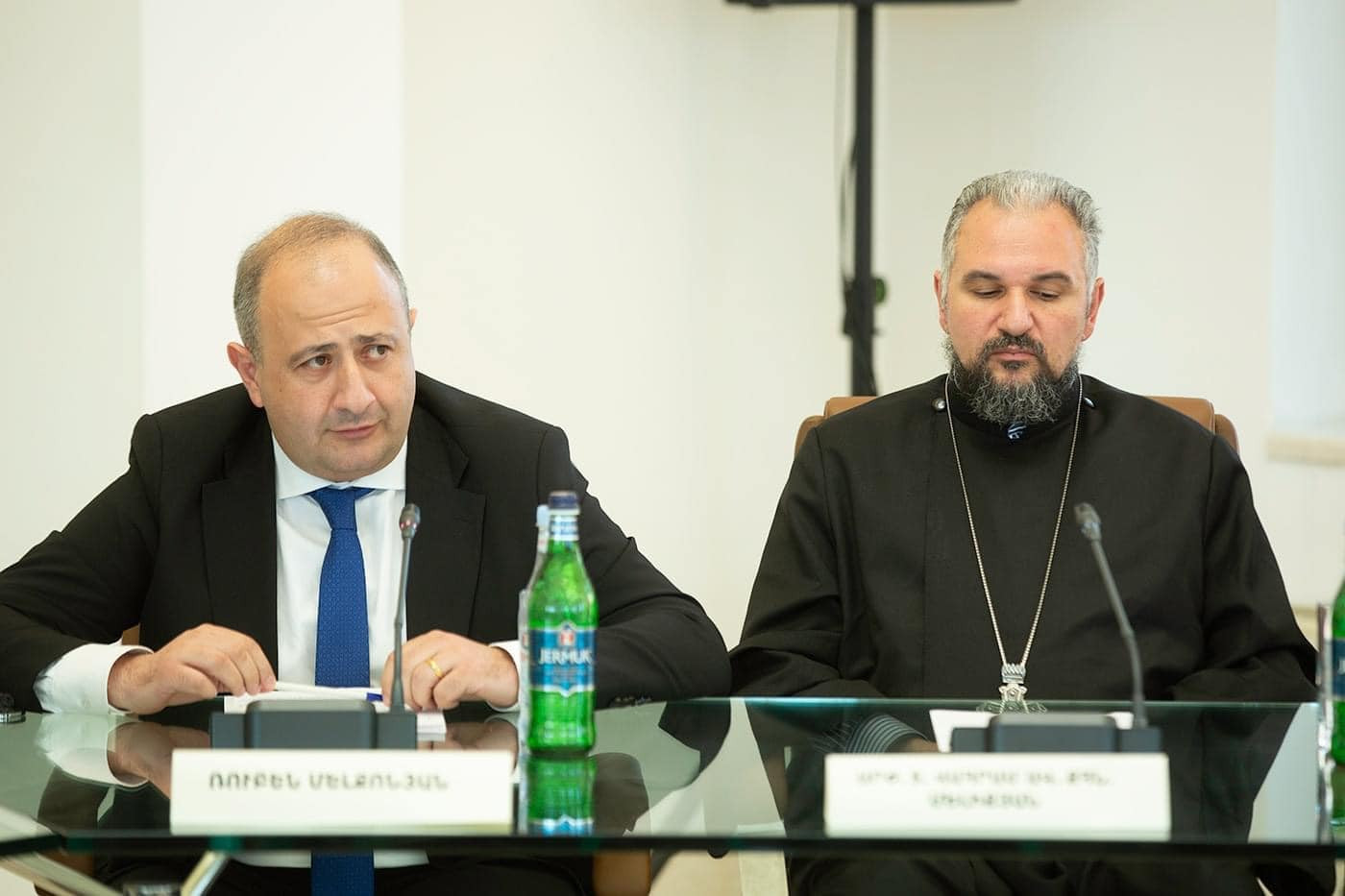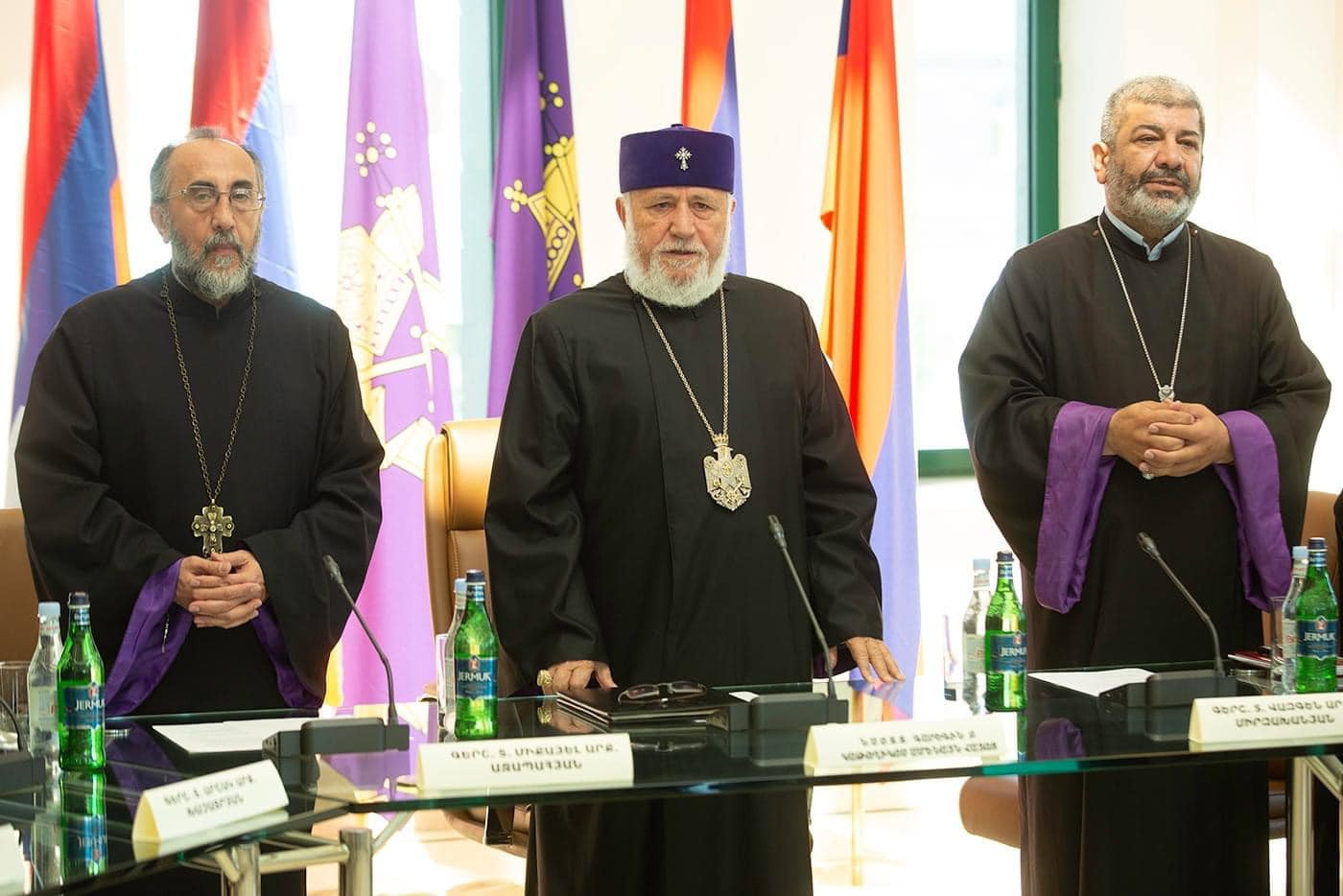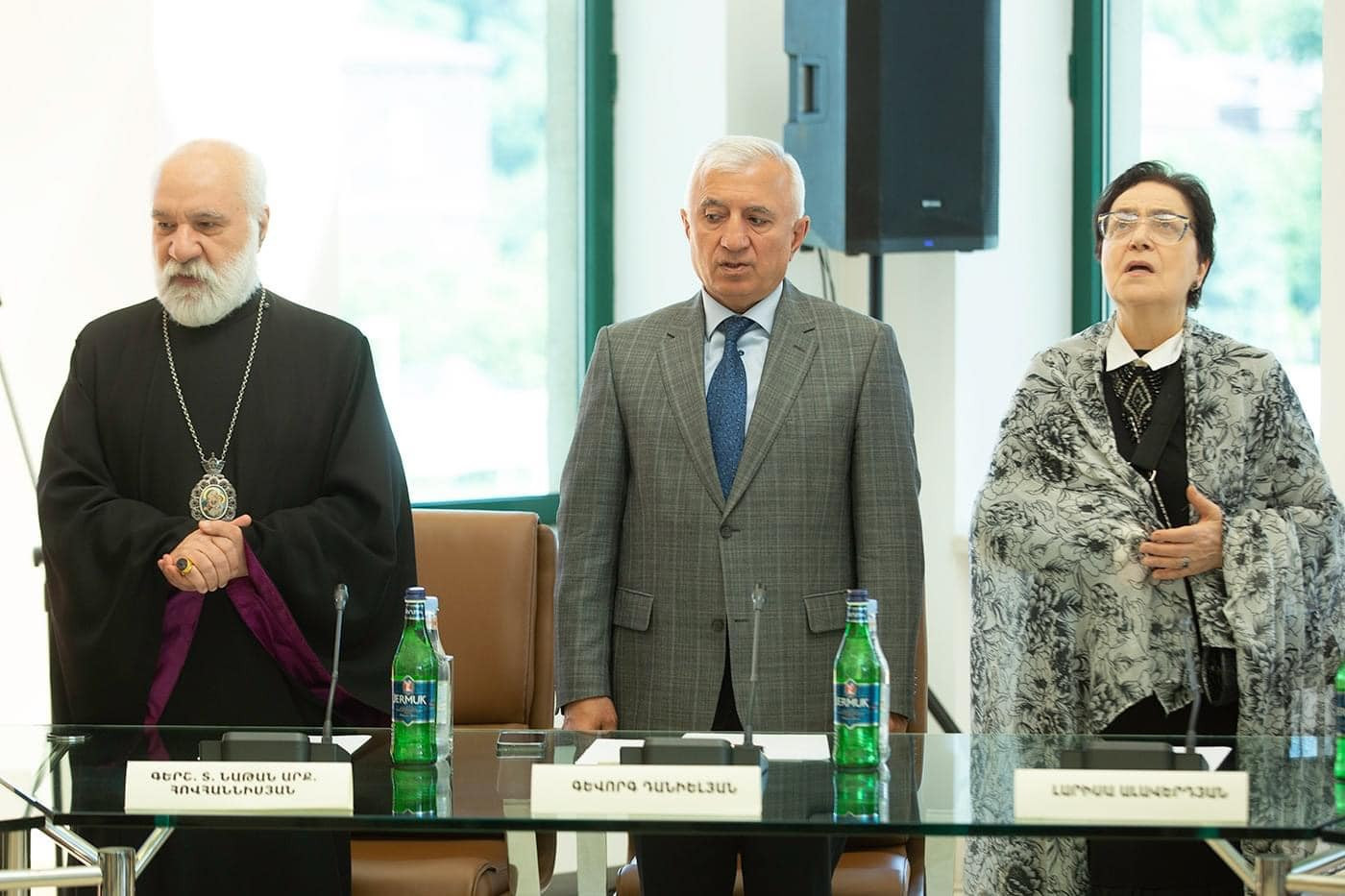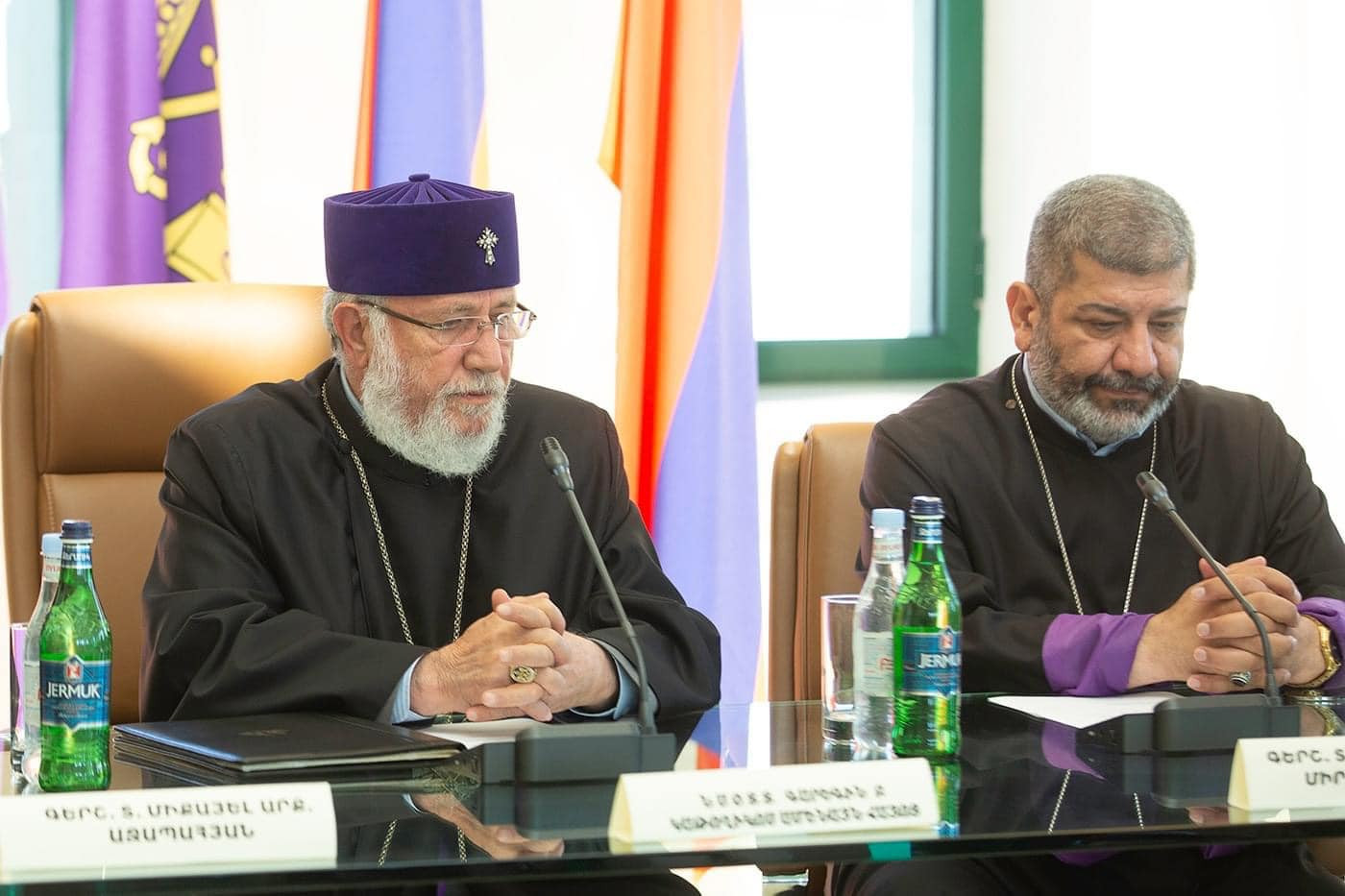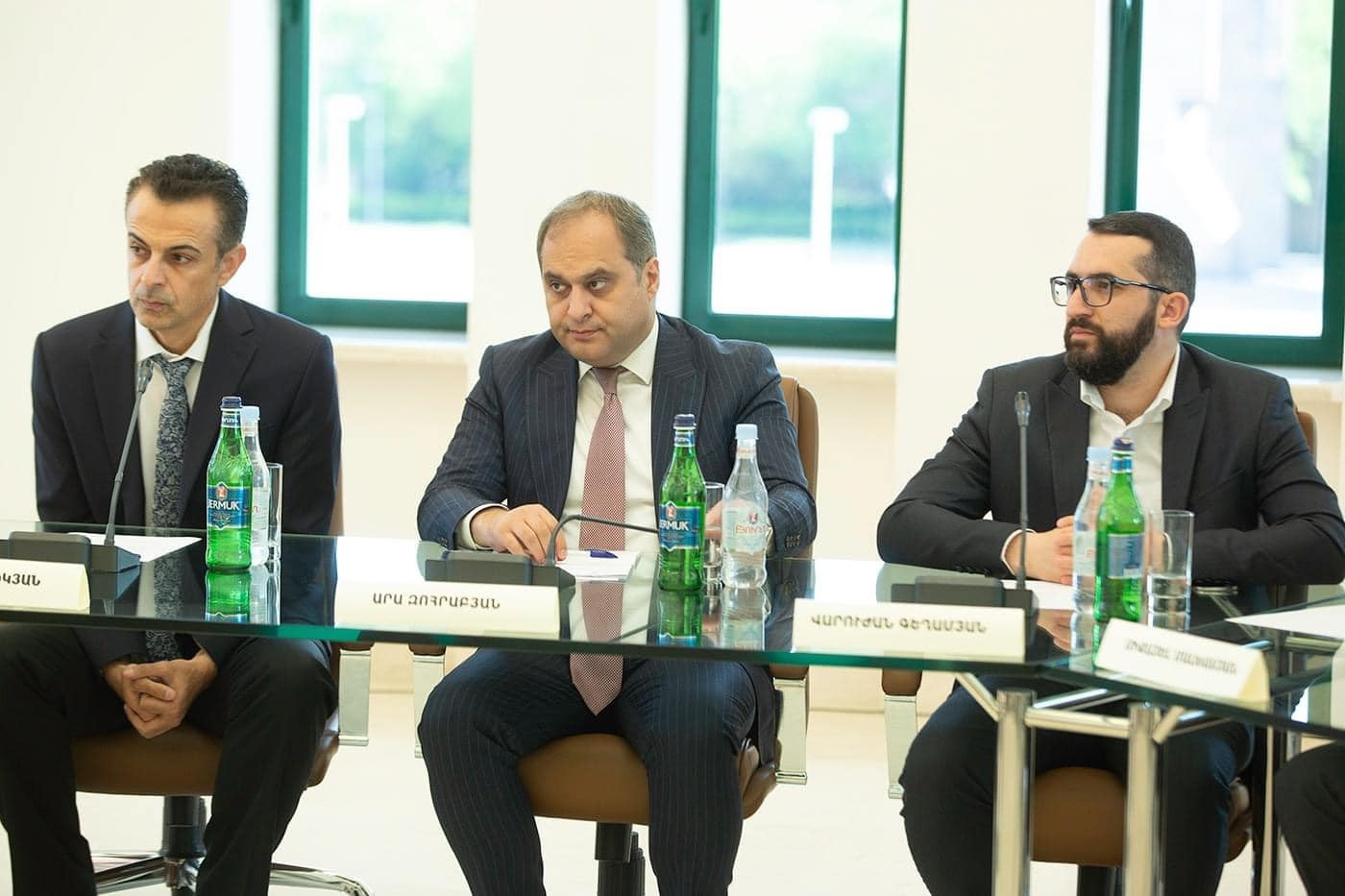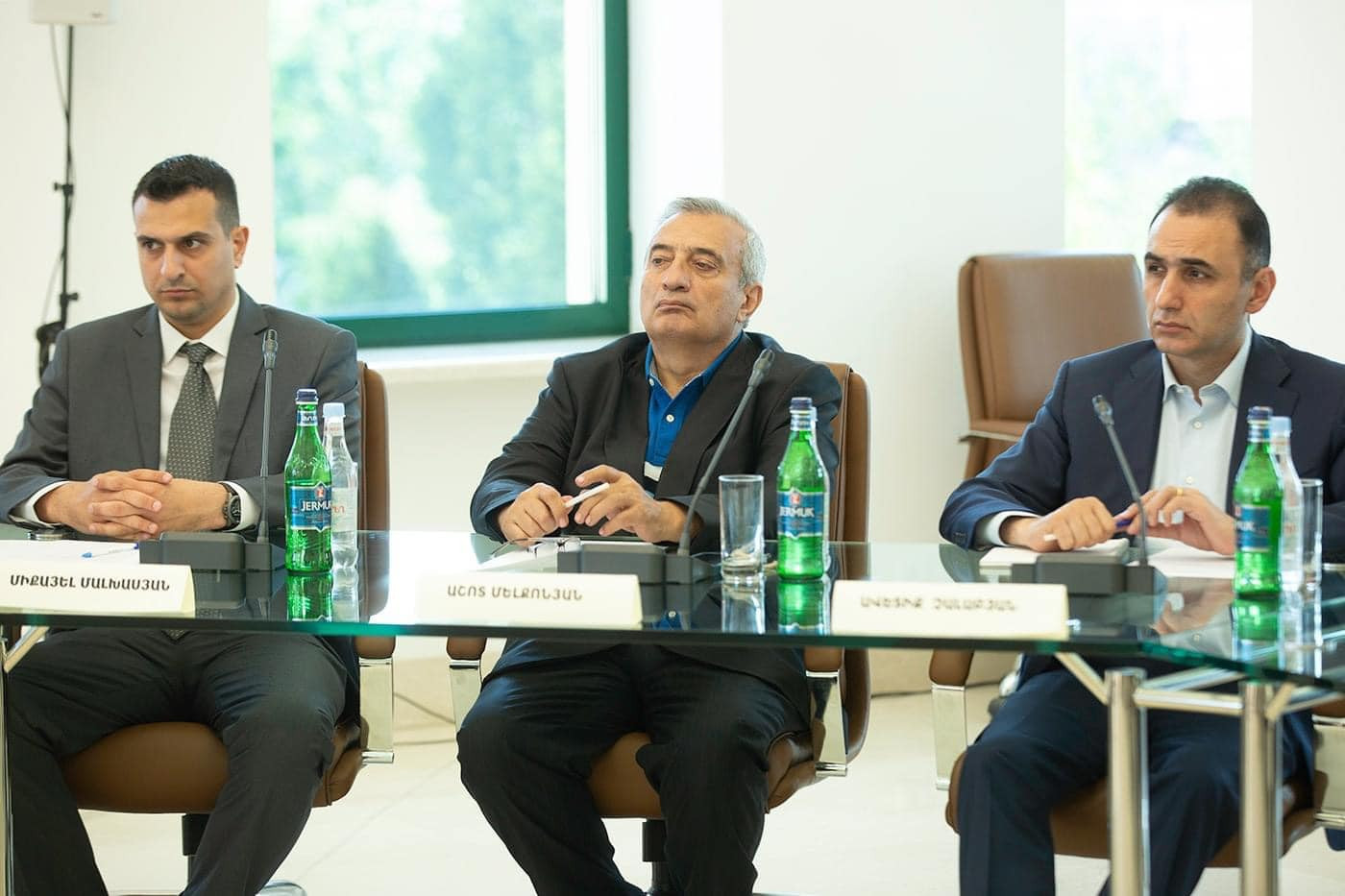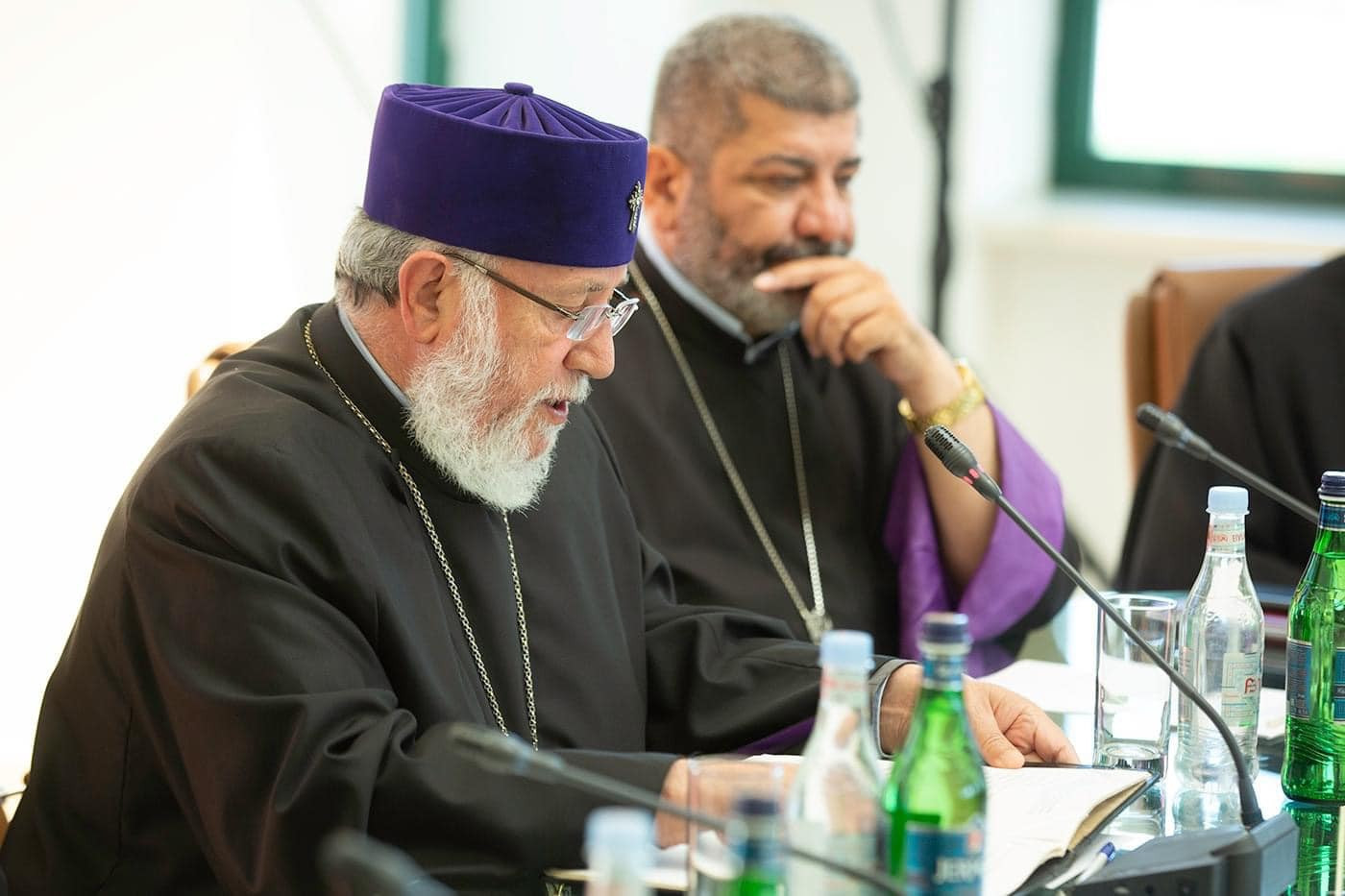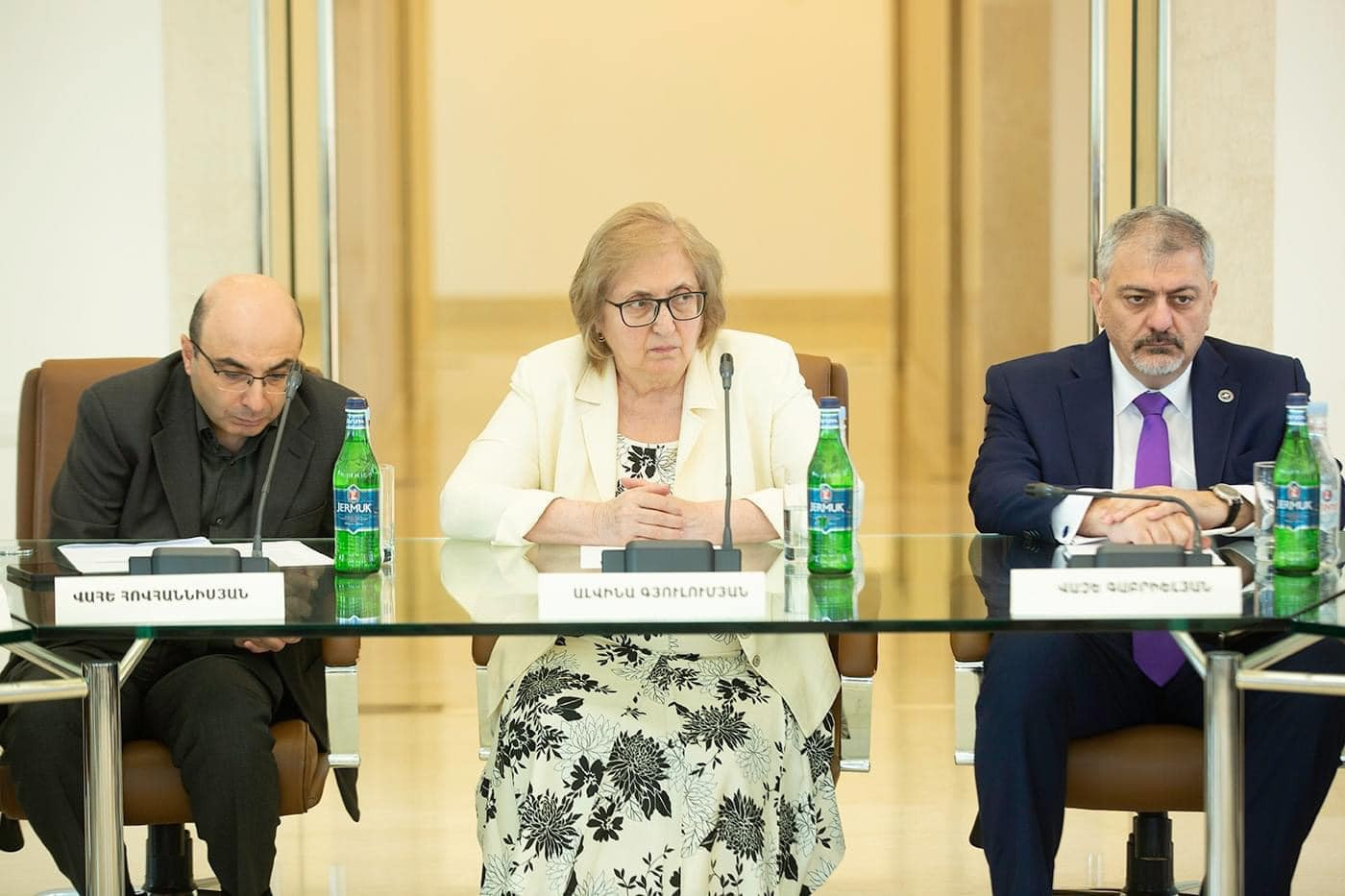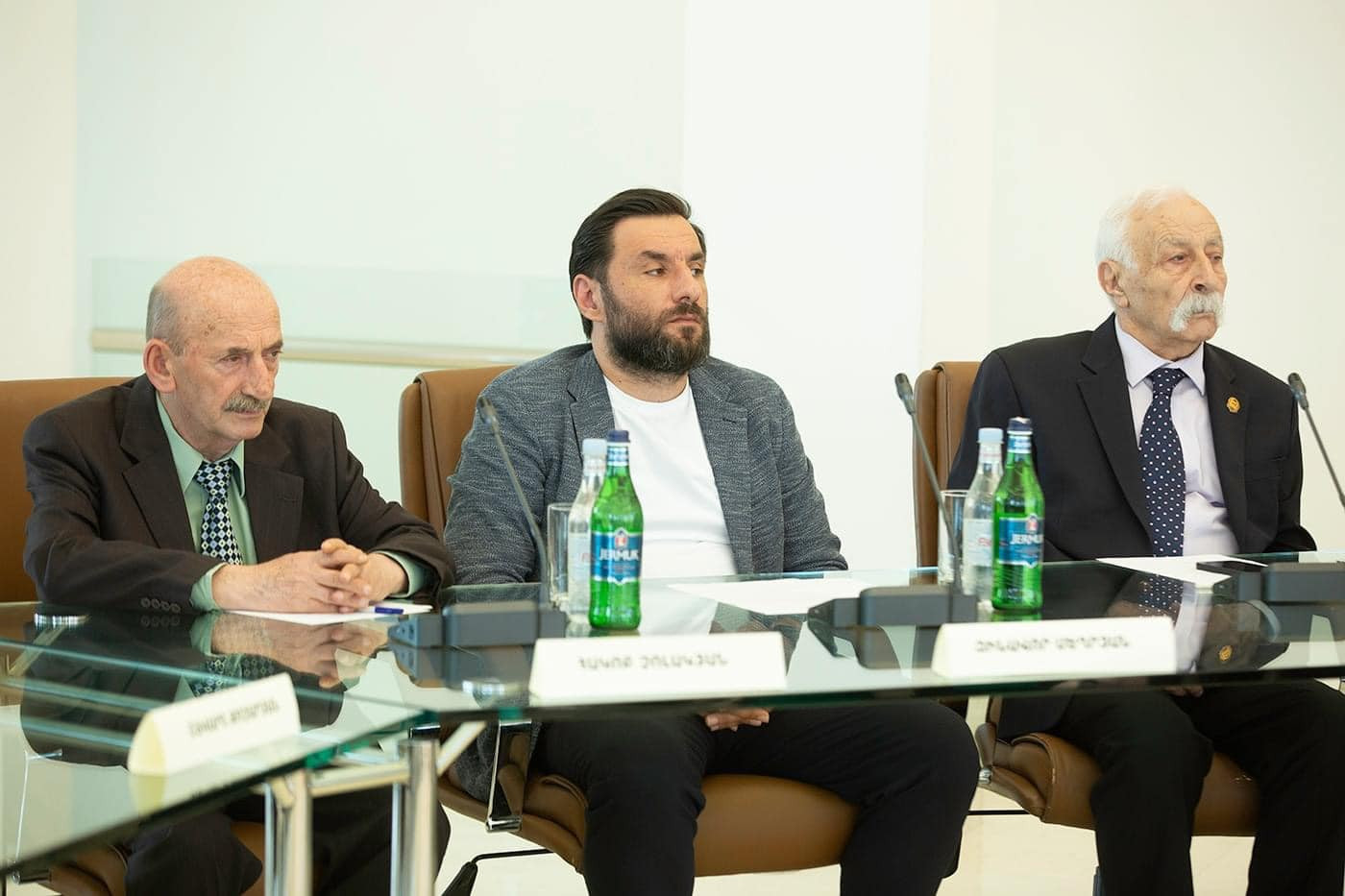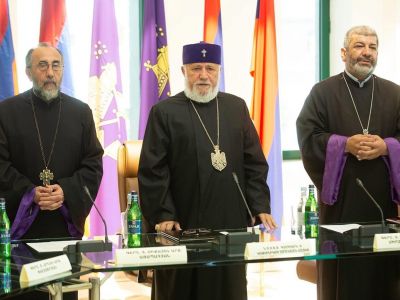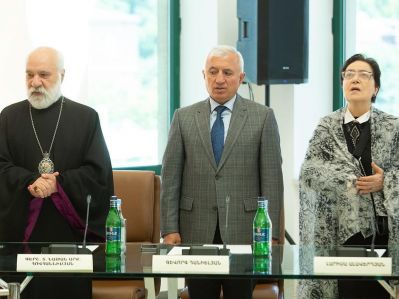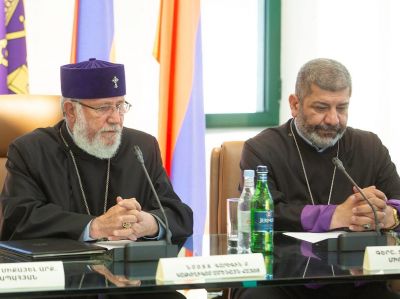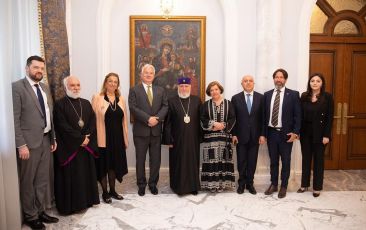The Inaugural Discussion of the Newly Created "Gavit" Platform in the Mother See
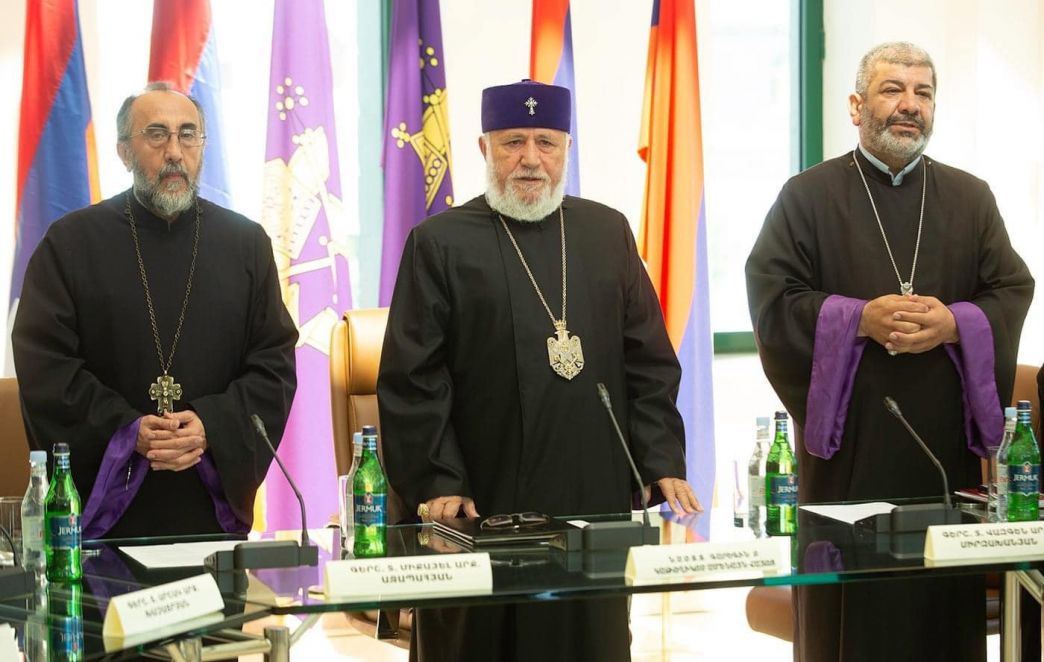 02.06.2023
02.06.2023
On June 2, in the "Vatche and Tamar Manookian" Library of the Mother See of Holy Etchmiadzin, under the chairmanship of His Holiness Karekin II, Supreme Patriarch and Catholicos of All Armenians; the inaugural discussion of the newly created "Gavit" platform took place.
Clergymen, national, public, political figures and other respectable representatives of various fields participated in the discussion.
Following the Lord's prayer, His Eminencve Archbishop Michael Ajapahyan, Primate of the Diocese of Shirak, and coordinator of the platform, welcomed the participants. The Archbishop, presenting the previous history, purpose and format of the formation of the platform, specifically informed that, at the initiative of His Holiness Karekin II, discussions were held for a long time regarding the principles, goals and organization of the discussions, as a result of which a committee for the organization of the work of the platform was approved and the discussions were started.
Afterwards, the coordinating Archbishop invited the Catholicos of All Armenians to deliver his message to the participants on this occasion.
Conveying his Patriarchal blessings and appreciation to the organizing committee of the platform and the participants of the discussion, His Holiness noted that "Armenia and Artsakh at a turning point: challenges and ways to overcome" was chosen as the first topic of discussion, taking into account the stormy processes of domestic life, the existing security issues and the intensifying ontological threats against the people of Artsakh.
"We sincerely hope that with a joint reflection on the multifaceted challenges facing Armenia and Artsakh, we will be able to formulate constructive proposals, which will be considered with importance both by the authorities and by various political forces and figures, and will be an opportunity to unite with all our potential and get the country out of the current difficult situation. We all realize that only with nationwide unity will we be able to overcome the difficult and hard test facing the nation," stated His Holiness.
In his remarks, the Armenian Patriarch also emphasized that the Armenian Church, which for centuries has been the cherisher of the vision of the reestablishment of independent statehood of our people, today will continue to use all its capabilities, all its potential to serve the homeland and diaspora for the sake of strengthening Armenian statehood, protecting the just rights of the people of Artsakh and building a safe life and a bright future for the nation.
Within the framework of the topic, PhD, Orientalist Professor Ruben Melkonyan made a report. The reporter referred to the process of normalization of Armenian-Turkish relations and the preconditions that Turkey presented to Armenia in the 1990s, noting that over the years they have become even more threatening: "Now Turkish preconditions are equivalent to challenges. And each of these challenges refers to the cornerstone issues of our state, our identity. Therefore, meeting the preconditions presented by Turkey on the way to the normalization of Armenian-Turkish relations will deal a significant blow to Armenian identity and statehood," stated Mr. Melkonyan, emphasizing the regulation of relations with Turkey without preconditions.
Associate Professor Shavarsh Kocharyan presented a report on the following theme: "Challenges surrounding the Artsakh issue and ways to overcome it". In his report, Mr. Kocharyan, referring to the challenges facing the motherland and overcoming them, emphasized that it is necessary to get rid of the search for "saviors": "There are no ‘saviors’ either inside the country (individuals, parties, groups of people) or outside the country (no state will fight for us). The savior is in each of us, and the salvation will be as a result of the manifestation of the collective will of the people," said Mr. Kocharyan.
Following the reports, there were discussions and speeches about the difficult situation prevailing in Armenia, Artsakh and the region.
With the willingness to overcome the existing challenges and find solutions to the problems, there was hope that the discussions on the platform would be ongoing.
